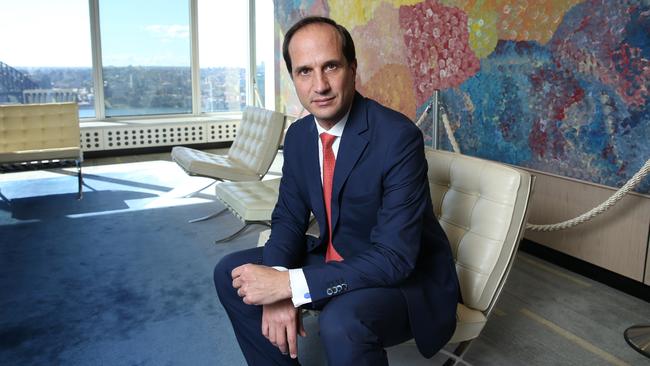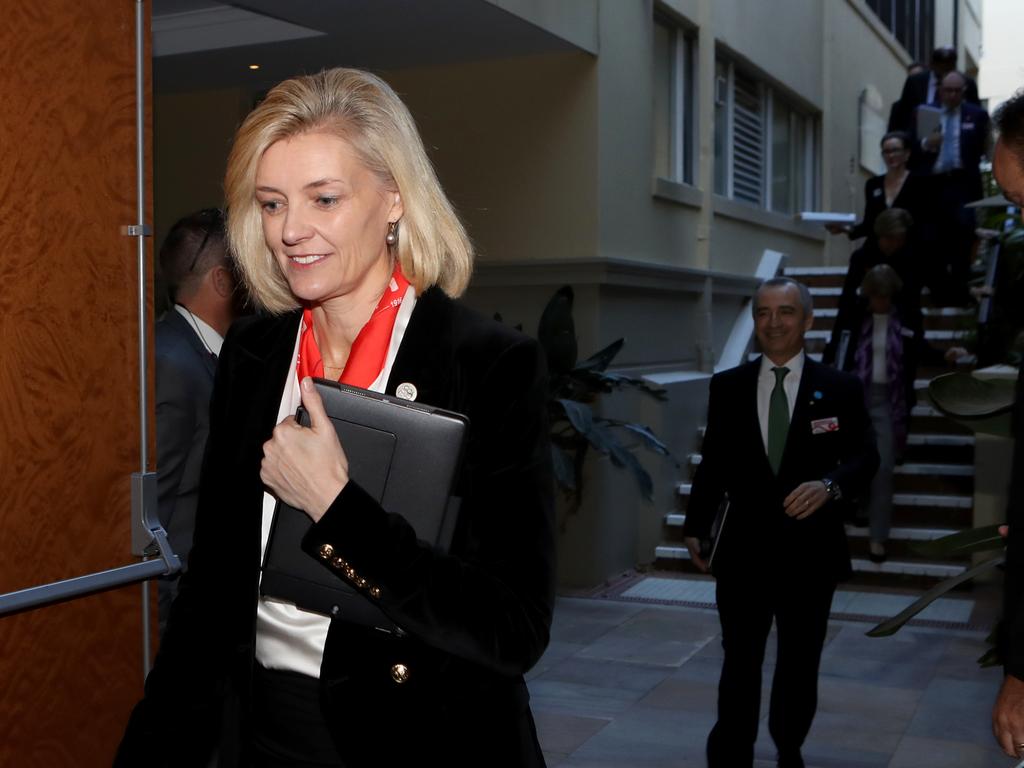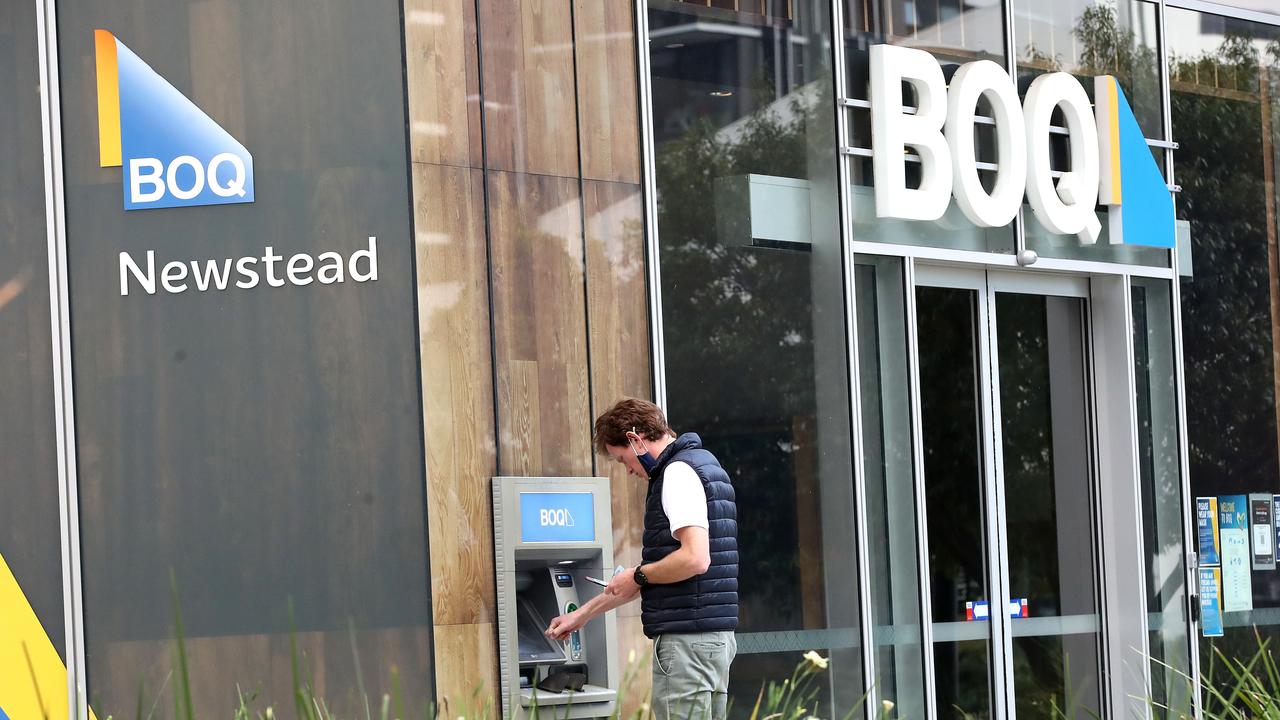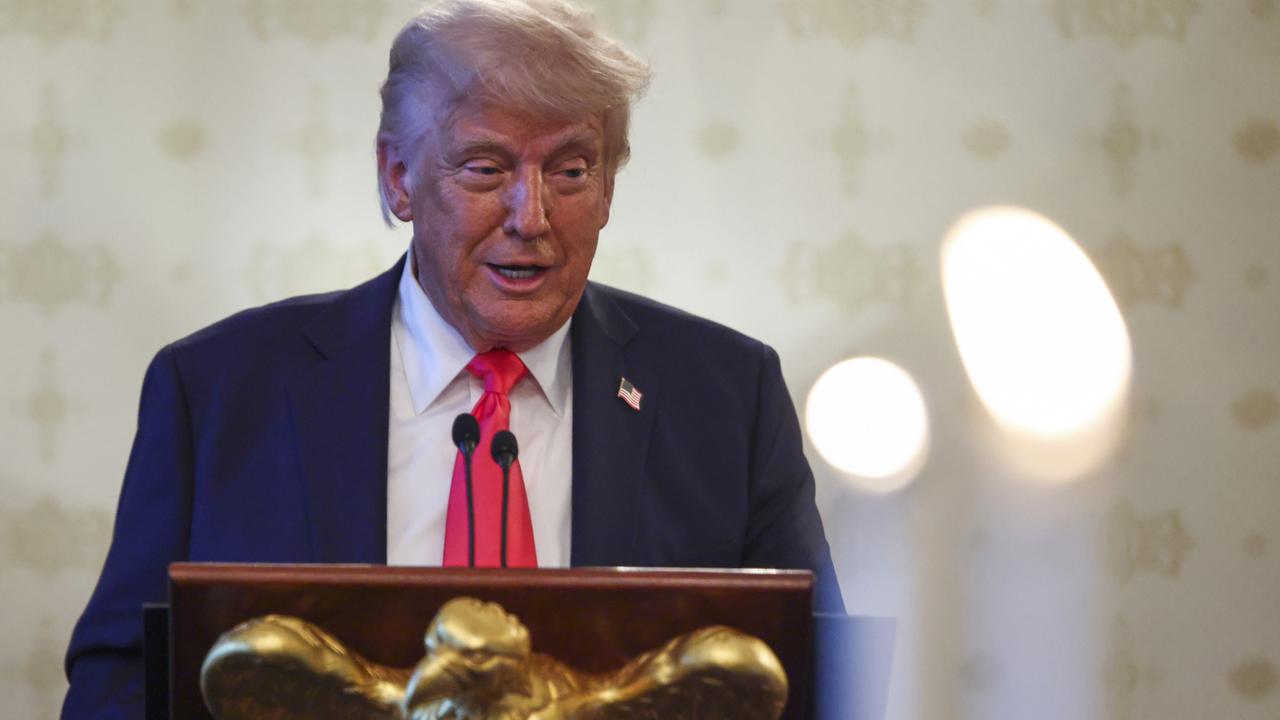AMP declares special dividend, buys back Mitsubishi UFJ stake as core profit tumbles
AMP chief executive Francesco De Ferrari has singled out reforming the troubled wealth group’s culture as his number one priority in the final months of 2020.

AMP chief executive Francesco De Ferrari has singled out reforming the troubled wealth group’s culture as his top priority in the final months of 2020, despite sidestepping questions about the controversial exit of a senior executive over conduct issues.
Mr De Ferrari told analysts his “number one” focus would be on improving AMP’s culture for the remainder of this year, even though he failed to answer questions about the reasons for the departure of the group’s Australia boss Alex Wade last week.
“We recognise there are some elements where we have more work to do,” he said, shrugging off suggestions it was taking a long time to fix culture. “This does not happen overnight.”
Mr De Ferrari said he recognised the importance of employees being able to speak up on issues.
“That for me is one of the most critical things... because if I look at the history of where financial institutions have gone fundamentally wrong, it’s because people lower down in the organisation saw issues but they really never felt safe to escalate them.”
His comments came as AMP released its half-year results and investors cheered its capital management plans, but as the company reels over culture issues linked to the departure of Mr Wade. The Australian revealed links between Mr Wade’s departure and his sending of lewd photos, as well as poor conduct.
Mr De Ferrari on Thursday admitted he was feeling the weight of responsibility around improving culture.
“I feel the responsibility on my shoulders,” he told journalists. Mr De Ferrari said it was ultimately his decision to hire Mr Wade, a former colleague at Credit Suisse.
He highlighted that driving cultural change, including improving diversity and inclusion, was key to “unlocking AMP’s potential and driving shareholder value”.
Mr De Ferrari said AMP was taking measures to speed up cultural change.
“We’ve made progress in strengthening accountability and execution but know we have more to do,” he added. “We’ve implemented a number of immediate actions including establishing a board culture working group and an employee-led inclusion taskforce, as well as working with an external expert to drive inclusive leadership.”
AMP on Thursday announced it will pay beleaguered shareholders a special dividend and kick off a share buyback to distribute surplus capital from the $3bn sale of its life insurance division, as the wealth group posted a sharp decline in earnings.
The 171-year old wealth group’s underlying profit tumbled 42 per cent to $149m for the six months ended June 30, compared to the same period a year earlier.
AMP had last month flagged a lower underlying interim profit of between $140m and $150m, as the impact of COVID-19 hit the company and assets under management. Last year’s first-half underlying profit was a revised $256m.
Meanwhile interim net profit attributable to shareholders came in at $203m, swinging from a net loss of $2.29bn in the same period last year, due to large impairments.
A special dividend of 10c per share was declared on Thursday, delivering shareholders $344m although AMP will not pay a separate first-half or final dividend this year. AMP last paid an interim dividend in 2018.
The company will offer to buy back up to $200m in shares from investors, as part of capital management initiatives. AMP also announced it will repurchase Mitsubishi UFJ Trust and Banking Corporation’s 15 per cent stake in infrastructure and real estate arm AMP Capital.
AMP’s share price surged 10.9 per cent to $1.53 on Thursday, as investors cheered the capital return against the backdrop of COVID-19.
Mr De Ferrari said with the second wave of the pandemic gripping Australia operating conditions would “remain challenging”, but he didn’t think that or Mr Wade’s departure would markedly slow his three-year turnaround plan.
“I manage this organisation for the long-term so I am confident that … we are driving execution momentum. We have a big book of work... Results will come, but the hard work has to come first.”
The departure of Mr Wade came weeks after AMP’s promotion of Boe Pahari to lead AMP Capital, which sparked a backlash given he had been financially penalised over an earlier harassment incident.
Mr Pahari answered an analyst question on Thursday about AMP Capital’s strategy, but was not available for media questions.
Merlon Capital Partners portfolio manager Hamish Carlisle, an AMP investor, urged the company to address matters of conduct and culture.
“Whether there is or there isn't (a culture problem) doesn’t matter, the perception is that there is,” he said.
“If that is the perception that is the reality and it is therefore in shareholders’ best interests (for AMP) to address that.”
AMP’s purchase of MUTB’s stake in its capital division came after the Japanese firm purchased competitor First Sentier. Mr De Ferrari said it also allowed the unit to position for the next leg of growth.
Mr Carlisle supported AMP’s repurchase of the holding, but also said it increased the probability of a spin-off or acquisition of the capital unit, or a buyout of AMP in its entirety.
“The flexibility is valuable... it also makes the buyout of the group significantly less complex.
“It makes it easier for someone to buy it or the company to spin off part of it.”
“Divesting all or part of it (AMP Capital) releases a massive amount of shareholder value.”
Morgan Stanley analysts said while investors would applaud the capital return, risks around regulation and “stabilising and rebuilding” AMP’s business model remained.
Investors had hoped for a capital return linked to AMP’s sale of its life insurance arm, which included it taking a stake in the buyer’s local entity. The deal delivered AMP a boost in its capital surplus, which printed lower than expected due to COVID-19 deal impacts.
AMP saw operating earnings fall across all divisions.
Australian wealth management – which houses financial advice, superannuation and investment platforms – saw earnings slide 43 per cent to $59m for the six months ended June 30, on the same period a year earlier. Financial adviser numbers also fell.
AMP Capital’s earnings declined 40 per cent to $72m, while the banking unit experienced a 30 per cent decline to $50m. New Zealand wealth management saw an 18 per cent drop.
The Australian wealth division saw net cash outflows of $4.4bn in the first half, which included mandate losses, early release super and pension payments.
Assets under management decreased 10 per cent to $121bn as at June 30, from December 31, reflecting volatile investment markets.
Funds on AMP’s North investment platform climbed 52 per cent to $2bn, buoyed partly by inflows from external advisers.






To join the conversation, please log in. Don't have an account? Register
Join the conversation, you are commenting as Logout